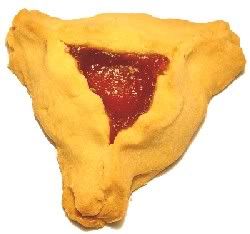
I ran into an acquaintance of mine yesterday that I knew from an eating disorder program. The fact that she is still kicking thrills me to no end. But she and I, though on different places in the eating disorder spectrum, never once had the “I am so fat” discussion. It is, at least in recovery, completely taboo.
Pandagon (thanks Uccellina) picked up on this research first and I’m inclined to throw my two cents into this fountain.
A study that recently came out (Eating Beh. 8(2007) 244-250), explains how “Fat Talk” (a “ritualized conversation or verbal exchange regarding weight” and I would add food intake) is actually key to women’s social interactions and is used as a means of social control.
It is expected that if this discussion begins (I’m so fat.) women/girls will join in this discussion (I was so bad today. I had a scone and a latte.), which generally occurs among girls/women who are not in fact, overweight but of average weight and height (you’re not fat – my thighs are so much bigger that yours).
In another study, it was found that if during a ritualized “fat talk” session she self-derogated her body rather than remaining silent or (horrors) stating self-accepting comments about her body, she would be perceived as more attractive to other women.
It is, in fact, normative in our society to be discontented with one’s female body and not sharing in this normative experience leads some of us to be seen as less feminine – oddly enough. I would no more get into one of these discussions than I would move to Pensacola but they are so incredibly pervasive. Just today a co-worker said something about another co-worker who was on a fad diet and then, “I should go on it too, I’m so fat.”
This leads me to the effect it has on those of us who are eating disordered. About 3% of the U.S. population are eating disordered. For women, the number is higher. Because most people diet at some point, it is hard to tell what is normal behavior and what is a problem.
I was confident that I didn’t have a problem. I told my eating disorder therapist, who I was referred to (maybe a clue here?), that I was not bulimic. I mean, everyone talks about being fat. Everyone talks about what you had on your salad, or feels proud that she ate only 4 ounces of blueberries today. (I was so good today!). Everyone throws up once in a while. Right? Ummm….no.
When it is so pervasive, one often has no idea that it’s a real problem, and when confronted with it, tends to be just a little, bitty bit defensive.
When a man wants to improve himself, he often begins by lifting weights to become bigger, stronger, and more powerful. When a woman wants to improve herself, she usually begins with a diet, which will leave her smaller, weaker, and less powerful (ANRED). Yet women have just as strong needs for power and control as do males. Often, this leads to the eating disorder itself.
The disorder is proof that I have power over my own needs for sustenance and over my desires. If you are taking away this thing I have power over, you are not just taking away this unhealthy thing, this thing you don’t understand, this clearly self-destructive thing (in your eyes). You are taking away this thing that helps me cope with my day. That helps me feel strong (though I get dizzy when I stand up) and makes me feel powerful and in control.
I know it freaks some people out when I talk about this. I’m not going to apologize. In recovery, I found that the more I read, the more I examined my beliefs, the healthier I became. I’m doing it for me, but I’m also writing it down for every other girl/woman who, in a crowd of other girls/women, in order to fit in, feels she needs to pinch her stomach and say something self-derogating about her body. After a while we all start to believe it.
Labels: Body Electric


 Stumble It!
Stumble It!
























